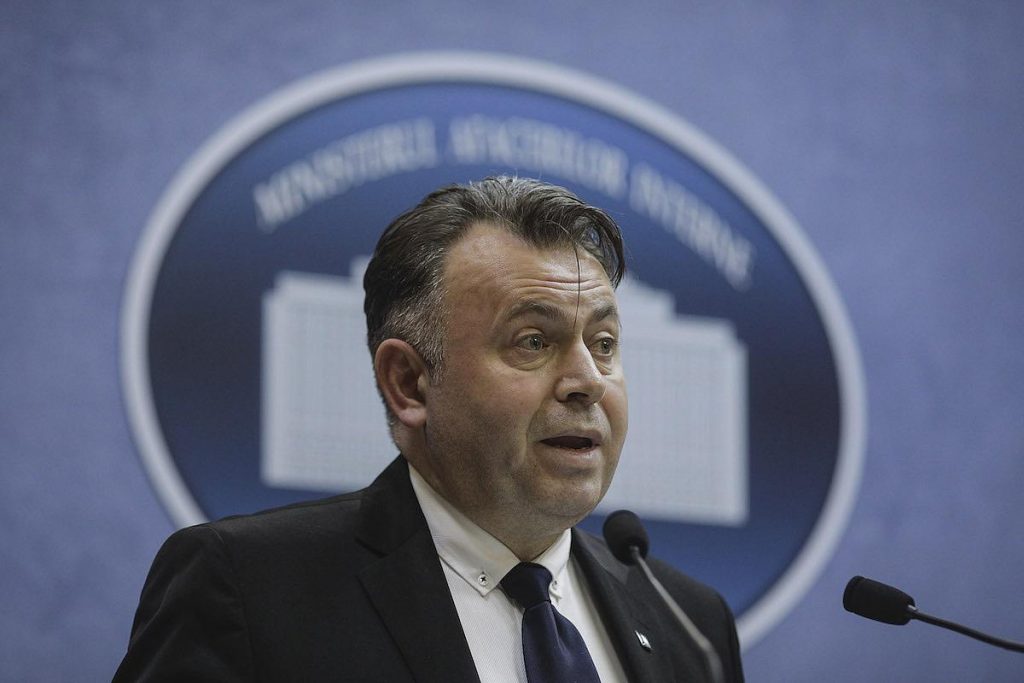Due to the large number of coronavirus infections, the extension of the state of alert on July 15 for another 30 days is inevitable, Health Minister Nelu Tătaru told B1TV on Monday. The minister spoke about the evolution of the pandemic situation and about the measures adopted to stop the spread of the virus.
“The evolution of the number of infections does not justify the restoration of the state of emergency. However, the extension of the state of alert from July 15 is inevitable. The increase in the number of cases does not allow for further relaxations,” the minister said.
On June 17, the government had extended the state of alert for another 30 days, creating a legal basis for maintaining certain restrictive measures. During the state of alert, social distancing and wearing protective masks on public transportation and in closed public spaces is obligatory until July 16. Furthermore, a maximum of 20 people may gather in indoor spaces, while a maximum of 50 people may gather at outdoor venues; the indoor parts of restaurants, cinemas and theaters remain closed.

According to the decision of the Constitutional Court, the extension of the state of alert does not require the approval of parliament, so the government may extend it as many times as it deems necessary. However, due to another decision of the court, quarantine and self-isolation are now only recommendations for patients without symptoms or people suspected of carrying the novel coronavirus. Thus, the government has started to work on a “quarantine law,” which would allow the state of alert committee to order quarantine for people coming from “infected” countries and for those who had contact with infected people. It would also create a legal basis to isolate people infected with the virus, either in hospitals or in their homes. The bill was accepted in the Chamber of Deputies, but the PSD is delaying the discussion about it in the Senate.
Despite the significant increase in the number of new coronavirus cases from last week, the government was not able to adopt this new law, as the Social Democratic Party (PSD), which has a majority in the Senate, is unwilling to vote on it. The bill was accepted, with several modifications, in the Chamber of Deputies last week.
According to PSD’s acting chairman, Marcel Ciolacu, the party will refuse to vote on the quarantine law until the prime minister and health minister appear in person at a committee meeting to discuss the draft. Ciolacu said that the Orban government had submitted a “very weak” law to parliament, as 80 percent of the draft had to be modified in the Chamber of Deputies. Ciolacu stressed that several parts of the law still need to be amended.

“We refuse to vote on the bill until the prime minister and health minister come in person to the Senate to clarify these disputed regulations,” Ciolacu said on Monday at a press conference following PSD’s National Executive Committee (CExN) meeting.
In a press release, the government accused Mr. Ciolacu – who is also the President of the Chamber of Deputies – of misinforming the public. They claim that neither the prime minister nor any member of the government were invited to parliament to debate the quarantine law.
According to press reports, there was a heated debate at the CExN meeting on how the Social Democrats should approach the quarantine law. Ionel Arsene, chairman of the party’s Neamţ County branch, told the press – contradicting Ciolacu – that they agreed to vote on the bill but with several modifications. Arsene stressed, that he was opposed to this decision, as he thinks the bill should be sent back to the government, which should work on a “correct” draft “that respects the rights and freedoms of the citizens.” The PSD politician thinks the bill, already amended in the Chamber of Deputies, severely restricts civil rights and freedoms.
Most debates in the Senate Legal Committee regarding the quarantine law were about interpretations and human rights, (known by the Hungarian acronym of RMDSZ) Károly Császár, senator for the Democratic Alliance of Hungarians in Romania, told maszol.ro. “It is still a question as to what quarantine and isolation mean, or how to take asymptomatic patients to the hospital without their consent – these are the most delicate issues,” he explained. According to the senator, the Senate will also make amendments.
Császár thinks the biggest problem with the draft is that it was written, amended and accepted too fast; according to him, such an important law cannot be adopted overnight.

“It would have been luckier to think it through from every possible point of view in a calm environment. But we are in a pandemic situation; we have to adapt to that,” he added.
Császár added that the RMDSZ will vote for the law as long as no drastic amendments are made.
Another 637 cases of coronavirus were reported since the last informative bulletin sent by the Strategic Communication Group (GCS), with the total number of cases reaching 33,585 on Monday. There are currently 234 patients in ICU units, and 23,798 have been discharged as fully recovered.
Title image: The number of new cases is increasing in Romania. Photo: Getty Images